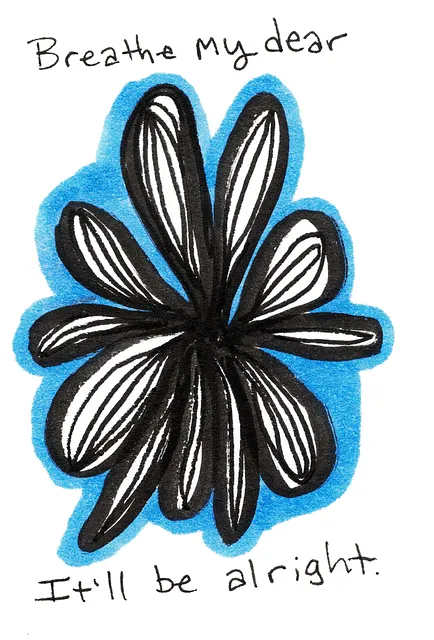The Kaiser Permanente mental health center Superior promotes self-care as a powerful tool for mental wellness, offering resources like mindfulness techniques, therapy, and support groups. By integrating simple rituals, structured routines, and joy-sparking activities, individuals can manage stress, elevate mood, and build resilience. The center addresses barriers to self-care, providing practical strategies and community support to encourage prioritizing mental well-being.
Self-care is an essential aspect of maintaining good mental health, and organizations like Kaiser Permanente’s mental health center play a crucial role in promoting this. In today’s fast-paced world, many struggle to prioritize self-care due to various barriers. This article explores the significance of self-care for overall well-being, offering practical strategies from experts at Superior communities. Learn how to overcome challenges and establish sustainable self-care routines, drawing insights from Kaiser Permanente’s resources and Superior’s professional guidance.
- Understanding the Importance of Self-Care for Mental Well-being (Focus on Kaiser Permanente mental health center's resources and insights)
- Practical Strategies for Incorporating Daily Self-Care Routines
- Overcoming Barriers and Sustaining Self-Care Practices Long-term (With tips from Superior communities and professionals)
Understanding the Importance of Self-Care for Mental Well-being (Focus on Kaiser Permanente mental health center's resources and insights)

Self-care isn’t a luxury but an essential practice for maintaining mental well-being. At Kaiser Permanente mental health centers, we recognize its profound impact on our overall health and happiness. Incorporating self-care into daily routines allows individuals to manage stress, improve mood, and enhance resilience – all vital components in the journey towards emotional healing processes. By prioritizing self-care, we not only nurture ourselves but also build a buffer against mental illness stigma reduction efforts, fostering an environment where seeking support is normalized.
Kaiser Permanente’s superior resources offer a range of tools and strategies tailored to individual needs. These include mindfulness practices, therapy sessions, and support groups – all designed to empower individuals in their pursuit of mental wellness. Understanding the importance of self-care is the first step; taking proactive measures ensures we’re equipped to navigate life’s challenges with greater ease. This, in turn, contributes to a comprehensive risk management planning for mental health professionals, allowing them to better assist others while also maintaining their own well-being.
Practical Strategies for Incorporating Daily Self-Care Routines

Incorporating daily self-care routines is a powerful way to nurture both physical and mental well-being, as advocated by the Kaiser Permanente mental health center. Superior self-care practices can significantly enhance your overall quality of life and resilience to stress. A practical strategy is to start small and build consistent habits. Begin with simple rituals like mindful breathing exercises or short walks in nature, which can help reduce anxiety and improve mood. Even just 10 minutes dedicated to these activities each day can make a noticeable difference over time.
Additionally, creating structured routines around mealtimes, exercise, and sleep schedules can positively impact your mental health. Consider incorporating activities that spark joy, such as reading, painting, or practicing yoga, into your daily routine. These activities not only promote relaxation but also boost self-esteem improvement and serve as an effective depression prevention strategy. Even a community outreach program implementation centered around these themes can foster a supportive network, enhancing the overall effectiveness of one’s self-care journey.
Overcoming Barriers and Sustaining Self-Care Practices Long-term (With tips from Superior communities and professionals)

Overcoming barriers to self-care is a significant step towards sustaining mental well-being long-term. Many individuals struggle with integrating self-care practices into their daily lives due to various reasons, such as demanding work schedules, caregiving responsibilities, or past experiences with mental illness stigma. The Kaiser Permanente mental health center Superior recognizes these challenges and offers valuable insights from professionals and supportive communities.
One effective strategy is to start small and build momentum. Incorporating simple yet meaningful acts of self-care like mindfulness exercises, regular physical activity, or spending time in nature can help overcome initial resistance. Mental Illness Stigma Reduction Efforts play a crucial role by fostering an environment where individuals feel safe exploring their mental health needs. Additionally, Self-Care Routine Development groups facilitated by Superior communities provide a supportive network, offering tailored advice and encouragement to sustain these practices over time.
Self-care is a transformative journey, and with consistent practice, individuals can experience profound improvements in their mental well-being. By drawing insights from resources offered by organizations like Kaiser Permanente mental health center and adopting practical strategies shared by communities and professionals, one can create sustainable self-care routines. Remember, overcoming barriers requires understanding and support, ensuring long-term adherence to these vital practices. Integrating self-care into daily life is not just a choice; it’s an investment in one’s overall health and happiness, as promoted by both Kaiser Permanente and Superior communities.






